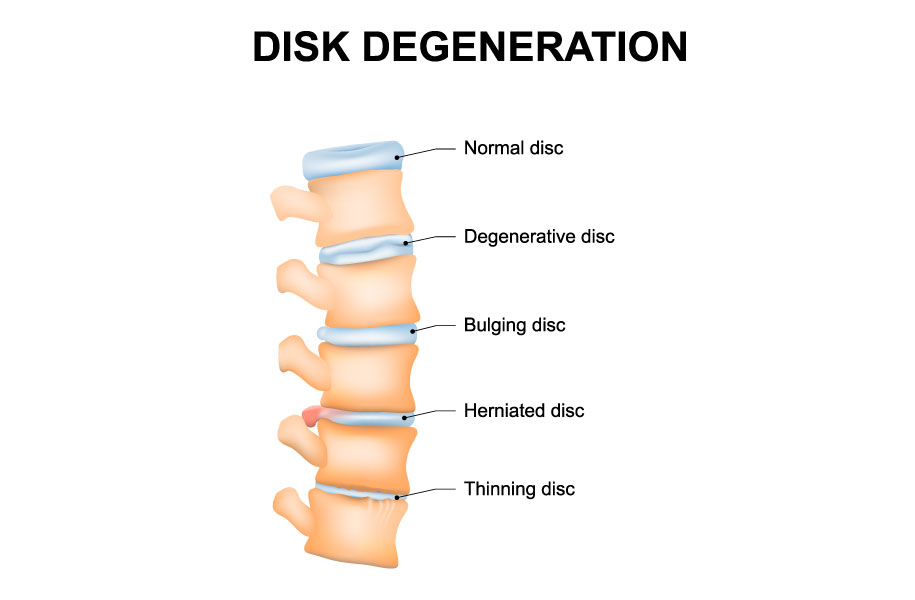
What is a Degenerative Disc Disease?
Causes of a Degenerative Disc Disease
Crack. The stress of everyday movements and minor injuries over the years can cause tiny tears in the outer wall, which contains nerves. Any tears near the nerves can become painful. And if the wall breaks down, the disk’s soft core may push through the cracks. The disk may bulge, or slip out of place, which is called a slipped or herniated disk. It can affect nearby nerves.
Degenerative Disc Disease Treatments
Degenerative disk disease may also lead to muscle spasms. Your doctor may suggest medicine to help relieve them.
Physical therapy. Specific movements make the muscles in your neck and back stronger and more flexible. This supports the spine.
In most cases, physical therapy and pain medication are enough for long-term relief.
Steroid Injections. These have strong medications to ease pain, swelling, and inflammation. Your doctor may suggest you get a shot in the epidural space in your back, a fluid-filled area around the spinal cord, or get one in your nerve or muscle.
Surgery
If other conservative treatments don’t work, surgery might be recommended. One procedure, called a discectomy, removes the injured part of the disk. This helps take pressure off your nerves. In some cases, Artificial Disc Replacement might be recommended. If you have a severe problem, a fusion (to permanently connect the vertebrae in your spine) might be recommended.
